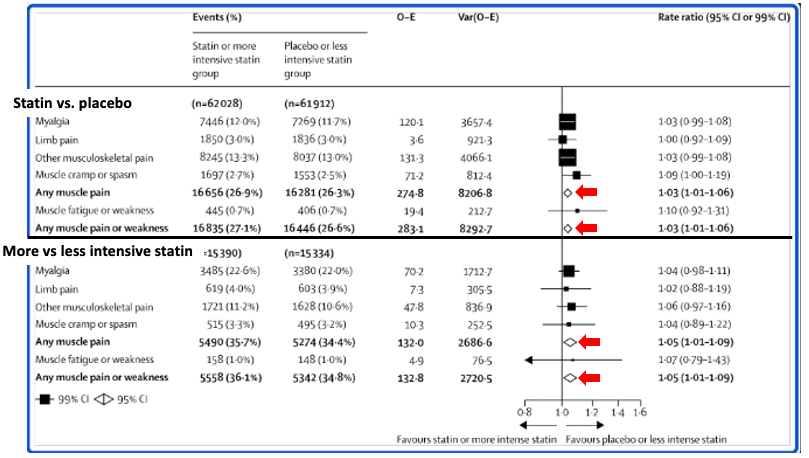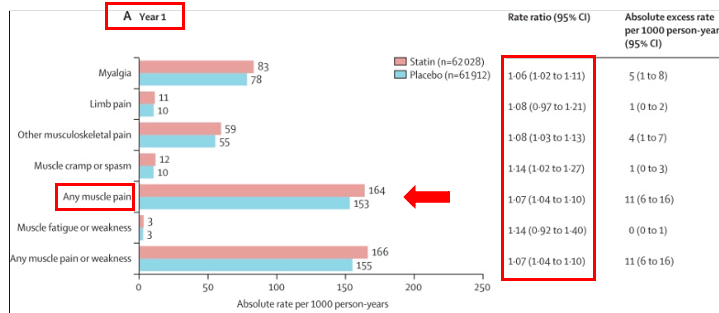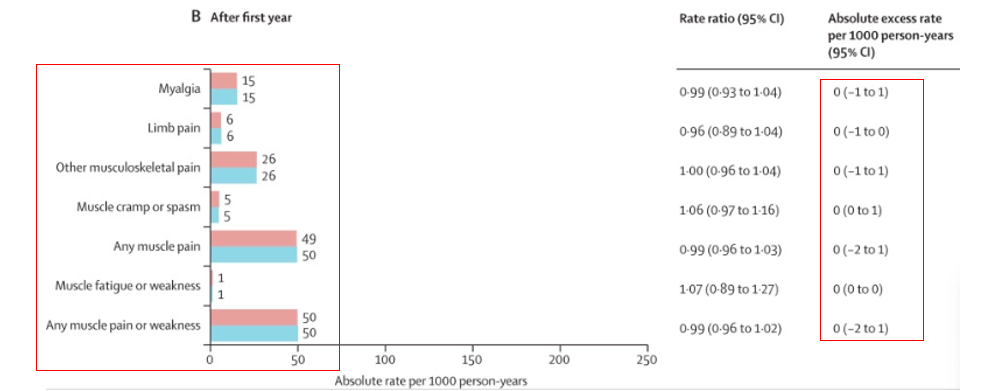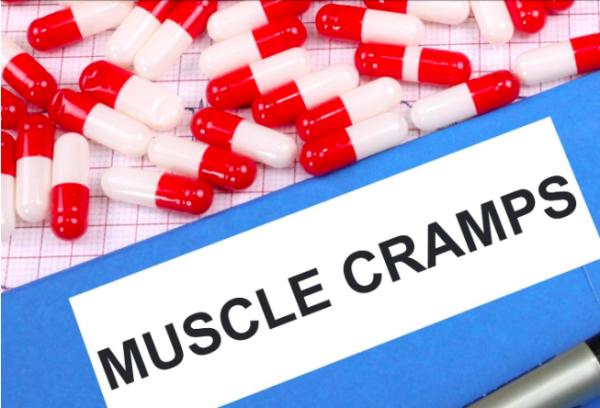The era of cholesterol-lowering drugs called statins began in 1987 when lovastatin (Mevacor) was approved. Although widely used, these drugs are not without some controversy. In the 35 years since Mevacor was introduced, people – health care professionals and otherwise – have been arguing about the benefits/risks of these drugs.
Without going into the countless papers about the utility and lack thereof of statins, I refer you to a comprehensive Cochrane review in a recent issue of BMJ.
One of the knocks on this class of drugs is muscle cramps (1), and this dogma has gone hand in hand with statins since the beginning. But the authors of a new Lancet paper claim that the statin muscle cramp phenomenon is vastly overstated. When people who take these drugs develop muscle cramps 90% of the time, it is not due to the drugs.
“The idea that statins may cause frequent muscle pain has been a persistent belief among some patients and clinicians. However, our study confirms that the statin is rarely the cause of muscle pain in those taking statins,”
Prof Colin Baigent, director of the Medical Research Council’s population health research unit at the University of Oxford, and joint lead author of the study.
The group examined a total of 23 individual trials, all of which had strict criteria for inclusion:
- All trials were randomized and double-blinded
- All contained at least 1,000 patients (for a total of 123,940 patients)
- 19 of the trials compared any statin regimen (from less intensive to aggressive) to a placebo group
- Four trials (30,724 patients) compared more intensive versus less intensive statin therapy.
Results
Figure 1 (below) shows a Forest plot (see explanation below) comparing the adverse effects (cramps or weakness) in treated and placebo groups. In a Forest plot, any line that crosses the vertical 1.0 line is not statistically significant. The red arrows indicate small but statistically significant differences in muscle pain or weakness. Top: Statin vs. placebo. Bottom: More vs. less intensive statin therapy

Figure 1. Forest plot comparing the adverse effects (cramps) in treated and placebo groups. Modified from: "Effect of statin therapy on muscle symptoms: an individual participant data meta-analysis of large-scale, randomized, double-blind trials" Lancet, August 29, 2022, DOI:https://doi.org/10.1016/S0140-6736(22)01545-8
The length of treatment was also an interesting finding. Statin use was associated with a 7% increase in any muscle pain or weakness during year one but none in the following years. In other words, if you are going to run into trouble, it will be early on.

Figure 2. A 7% increase in any muscle pain was observed during the first year of statin treatment vs. placebo.
But after year 1, there was absolutely no difference between the control and placebo groups (Figure 3).

The conclusion by the authors (my emphasis):
“These findings suggest that if a patient on statins reports muscle pain, then it should first be assumed that the symptoms are not due to the statin and are most likely due to other causes...What we’ve shown is actually that that’s not the best way to serve patients, because patients take that information and the moment they develop muscle pain they suspect the statin and that leads many of them to stop the statin, which actually puts them in harm’s way.
Bottom line
The connection between muscle pain and statin use appears to be mostly a myth. But this is not to say that the drugs should be handed out like candy. A small number of people do suffer from a severe muscle and systemic, dangerous condition called rhabdomyolysis. And the drugs can also raise liver enzyme levels, which may or may not be clinically significant.
In my case, it would be convenient to blame my multitude of aches and pains on Crestor, but that's a blatant lie. Age, decrepitude, and a bunch of really stupid (don't ask) accidents are the real reason. Gimme the pills.




